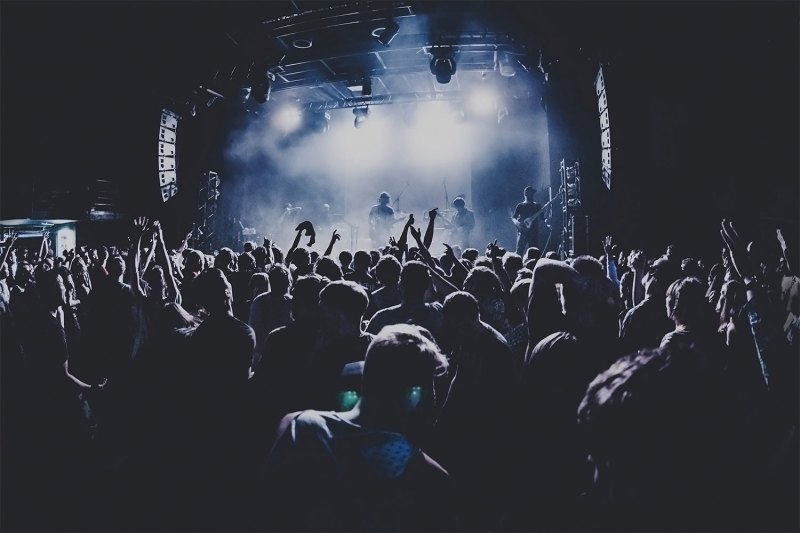The trickle down effect from a still-suffering economy is real and will no doubt be lasting. While the government continues to pump emergency funds into some American households and various businesses, for many it’s not nearly enough. Worse, some small operations are not on the receiving end of any sort of aid.
Music venues are suffering a particularly bad case of the pandemic blues. With essentially no live music happening at the moment, clubs all over the country sit vacant. At most, they’ll pour a few drinks to a few customers, thirsty for the old ways. Worse, their doors remain locked while the rent piles up. More tragically, they shutter entirely.
Here’s an alarming fact: An estimated 90% of American music venues are not eligible for the Paycheck Protection Program (PPP). That means they can’t access important loans used for keeping staff on the payroll and people employed. Without live shows there is no full-time staff so, as far as the feds are concerned, these venues don’t really serve a purpose.

But we all know better. Anybody who’s witnessed an amazing musical performance in the flesh knows the magic live music is capable of. Sure, some of your favorite acts are doing some pretty cool things even mid-pandemic, but most of us pine for the reciprocating energy that comes from having a band before a crowd. Venues from coast to coast are desperate, sharing through newsletters, social media, and other channels the collective plight. Donations have become popular but as it stands, it’s not enough.
Prominent players are ringing the alarm bells. Musicians like Jim James have reached out to their elected officials, imploring them for some awareness and some kind of financial stimulus. Many venues and artists hopped on the bandwagon created by the RESTART Act, legislation that would extend loans and some loan forgiveness to smaller establishments especially (with fewer than 500 staff members). It targets businesses that have shown at least a 25% decline in business, essentially every music venue out there. On September 1st, more than 1,600 venues around the country lit up their facades in red in solidarity and support for the act. Many venues have taken to touting the hashtag #saveourstages.
From iconic jazz clubs like Green Mill in Chicago to esteemed indie stages like the Doug Fir Lounge in Portland, the music has paused. With no end in sight, promoters and industry types are using bleak words like extinction when talking about the future of music venues, smaller ones especially. Frighteningly, Pollstar estimates that the music realm will likely lose close to $9 billion this year alone. But there are ways to bail some water out of a sinking ship.
While you can’t attend a show right now, you can reach out to your local representatives to push the importance of live music. Many of your favorite venues are also bars and restaurants and are up and running at least in some form during pandemic times. Patronize them often and tip handsomely. Look to buy merch from clubs while you can’t purchase tickets. Consider donating directly to your favorite local stages and follow your most beloved musicians on social media to see how they are supporting the cause.
Granted, as we continue to be gripped by a horrendous virus, systemic racism, historic wildfires, and more, live music feels like a luxury. But it’s also a livelihood for a lot of people and business owners. While we continue to swim in unknowns, think about some of the best concerts you’ve ever seen. Find live footage of them online and scroll through old photos and recorded segments from your phone. It’s a great way to get lost in music and remind yourself just how much of a temple the live music stage can be.


